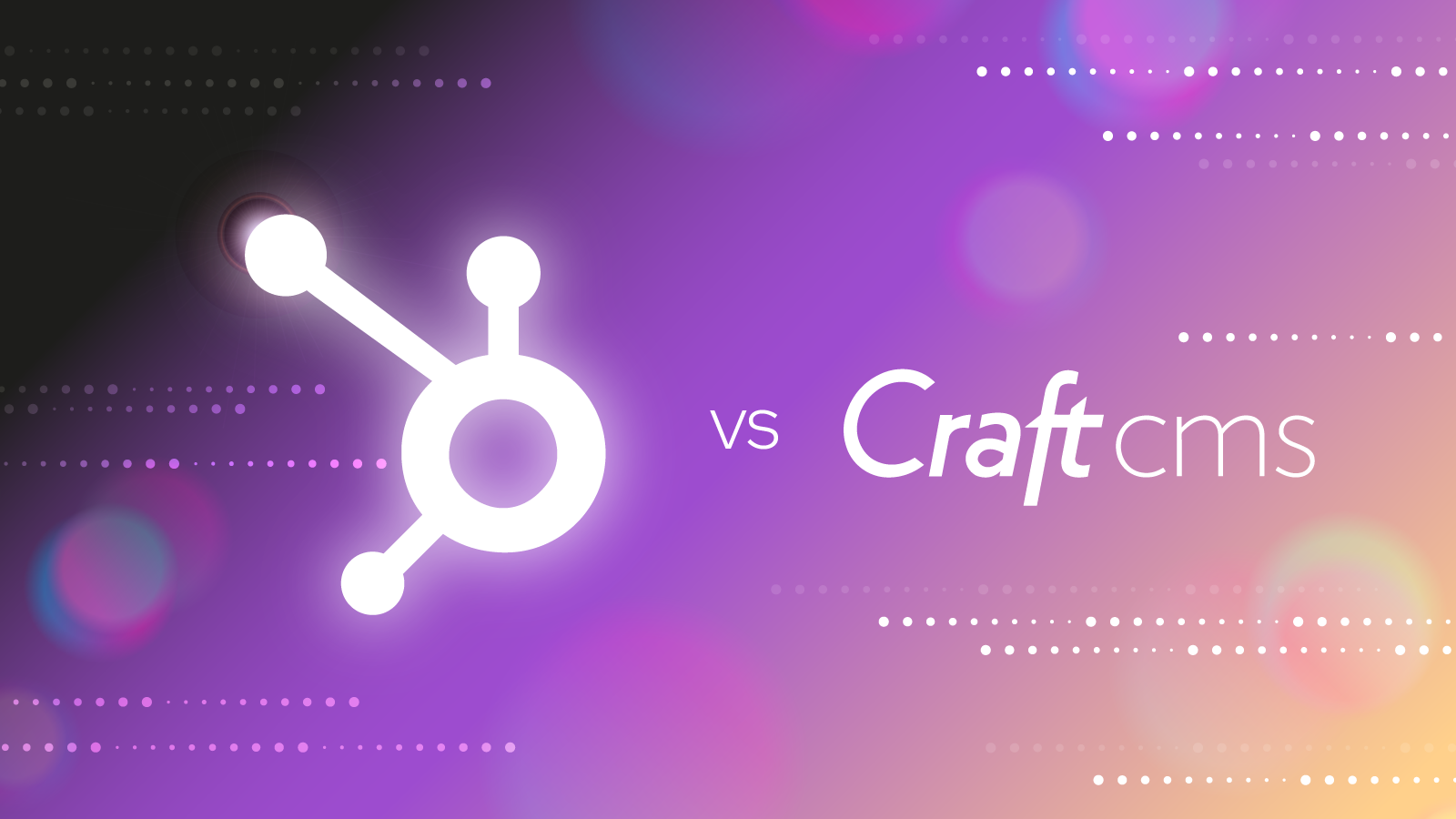Choosing the right Content Management System (CMS) is crucial for businesses looking to create and manage their online presence effectively. In this blog post, we will delve into a comparison between HubSpot and Craft CMS, two leading platforms in the CMS landscape.
What is HubSpot CMS?
HubSpot CMS is a cloud-based content management system (CMS) that is designed to help businesses create and manage their website pages in a customer-centric and data-driven manner. It offers a comprehensive set of tools and features that enable marketers to merge their website and marketing efforts seamlessly.
At its core, HubSpot CMS empowers businesses to create and tailor website pages using smart content. Smart content refers to dynamically personalised content that adapts based on factors such as visitor behaviour, preferences, demographics, and lifecycle stage. This level of personalisation allows businesses to deliver a more relevant and engaging experience to their website visitors, ultimately leading to higher conversion rates.
The CMS platform is integrated with other HubSpot tools, including marketing, sales, and customer service, providing a unified and cohesive solution for all marketers. This integration enables businesses to align their website content with their broader marketing strategies and goals, ensuring a consistent and seamless customer experience across multiple touchpoints.
What is Craft CMS?
Craft CMS is a content management system (CMS) that was founded in 2013 by Pixel & Tonic. It is designed to provide users with a flexible and customisable platform for managing the creation and modification of digital content. Craft CMS takes a unique approach by offering a blank slate where content takes the forefront, allowing users to have complete control over their website's design and functionality.
As an open-source CMS, Craft CMS provides users with the freedom to customise and extend its capabilities to suit their specific needs. It allows developers to structure their application data and deliver it through an application programming interface (API), enabling seamless integration with other systems or the creation of custom applications.
Advantages of HubSpot CMS:
1. Integrated Marketing Capabilities
HubSpot CMS offers a unique advantage by seamlessly integrating with the wider HubSpot ecosystem, providing a comprehensive solution for marketing, sales, and customer service. This integration empowers marketers to create personalised experiences, manage contacts, and leverage powerful analytics, all within a single platform.
2. User-Friendly Interface
HubSpot CMS prides itself on its user-friendly interface, making it easy for marketers and content creators to build and manage websites without requiring extensive technical knowledge. The intuitive drag-and-drop editor, pre-built templates, and a wide range of design options enable users to create visually appealing websites with ease.
3. Powerful SEO Features
Search Engine Optimisation (SEO) is essential for improving website visibility. HubSpot CMS offers robust SEO tools that assist in optimising content, implementing meta tags, managing redirects, and generating XML sitemaps. These features empower users to enhance their website's organic search performance and drive targeted traffic.
4. Dynamic Content Personalisation
Personalised content is crucial for engaging website visitors and driving conversions. HubSpot CMS provides advanced personalization features, allowing users to create dynamic content that adapts based on visitor behaviour, preferences, and demographics. This level of customisation helps businesses deliver a more tailored experience, resulting in higher engagement and better conversion rates.
5. Scalability and Security
HubSpot CMS caters to businesses of all sizes, from startups to enterprise-level organisations. The platform offers robust scalability, allowing businesses to expand their website's functionality as their needs evolve. Additionally, HubSpot CMS boasts enterprise-grade security measures, including data encryption, threat monitoring, and compliance certifications, ensuring the protection of valuable customer data.
Advantages of Craft CMS:
1. Flexible and Customisable
Craft CMS is renowned for its flexibility and customisability. It provides developers with a blank canvas, enabling them to create unique websites tailored to specific requirements. Craft CMS's modular architecture and extensive documentation make it an ideal choice for developers who seek complete control over the design and functionality of their websites.
2. Content Modelling and Structuring
It excels in content modelling and structuring, allowing users to define custom content types and relationships. This feature is particularly useful for businesses with complex content needs or those requiring multi-language support. Craft CMS's content modelling capabilities enable businesses to create consistent and well-organised content structures, enhancing the overall user experience.
3. Performance and Speed
Designed to deliver exceptional performance and speed. Its lightweight framework and efficient caching mechanisms ensure fast-loading websites, resulting in improved user experience and better search engine rankings. Craft CMS's emphasis on performance makes it an excellent choice for businesses that prioritise website speed and performance.
4. Developer-Friendly Environment
Highly regarded among developers for its developer-friendly environment. It offers powerful tools, such as Twig templating engine, Composer dependency manager, and robust API, which streamline the development process. Craft CMS's developer-friendly approach allows developers to work efficiently and build complex websites with ease.
5. Open-Source Community
Craft CMS benefits from a vibrant and active open-source community. The community actively contributes to the platform's development, creating plugins, extensions, and themes that enhance its functionality. This thriving ecosystem ensures that Craft CMS remains up-to-date with the latest technologies and provides users with a wealth of resources and support.
Conclusion
Ultimately, the choice between HubSpot CMS and Craft CMS depends on your specific business requirements, technical expertise, and budget.
While both Craft and HubSpot are powerful content management systems, we believe if you want the best on the market, HubSpot is the better choice for the vast majority of businesses.
HubSpot CMS stands out with its integrated marketing capabilities, user-friendly interface, and powerful SEO features, making it an excellent choice for businesses seeking a comprehensive marketing solution.
If you’re interested in finding out how HubSpot could benefit your business, get in touch with our team today.


